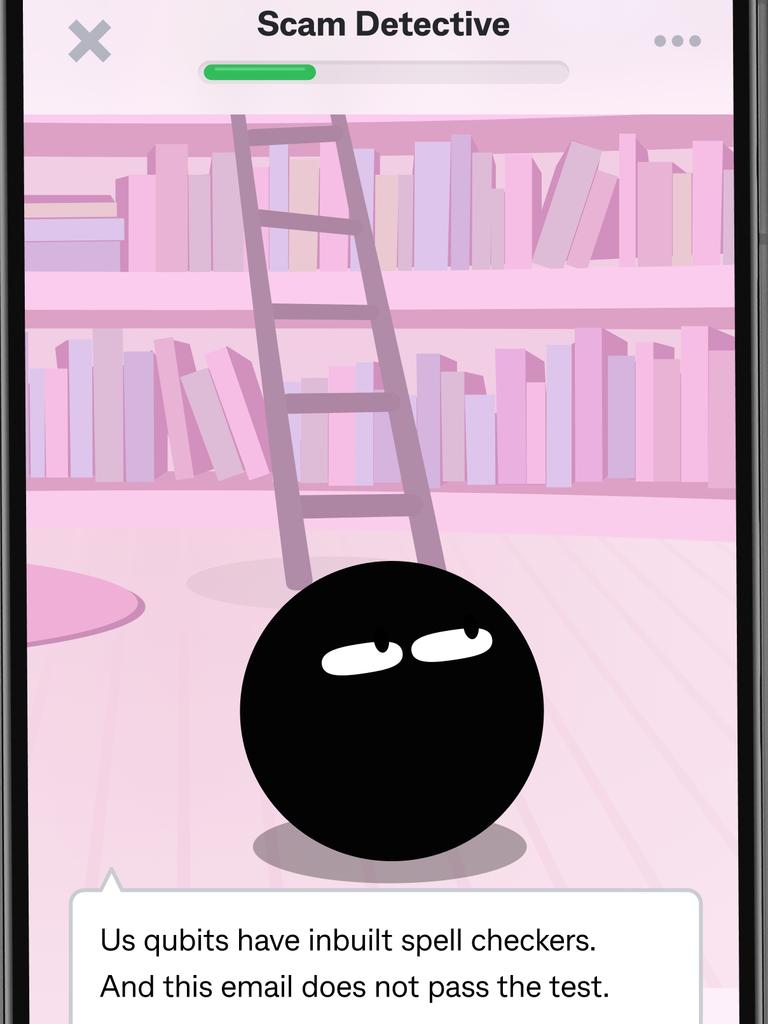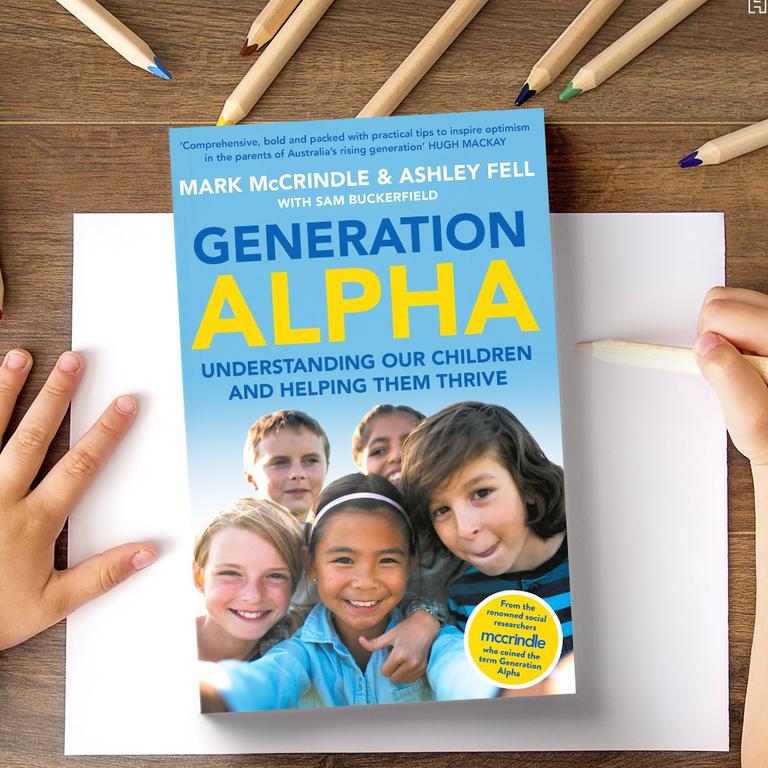Australian students need to be taught scam signs, online security
Scott Pape and other financial experts believe Australian kids need a ‘vital’ tool as Generation Alpha’s digitally-led lives mean they have to be scam savvy from a younger age than ever before

READING LEVEL: GREEN
Tools for kids to protect themselves from digital fraudsters* start with their ABCs, experts say, as improving online security measures for young Australians becomes increasingly essential.
With the Prime Minister’s Spelling Bee passing 20,0000 student registrations in its opening week of the school round, the Barefoot Investor and father of four Scott Pape said literacy* was “absolutely vital” for protecting children – and their financial decisions – online.

The nation’s mums and dads apparently agree, with exclusive new Fonto survey results commissioned by Kids News revealing the majority of surveyed parents (66 per cent) believe that literacy is fundamental to protecting digital identity.
“Our kids are being tracked and targeted like never before, from advertisers, online influencers to scammers,” Pape said. “It’s our responsibility to ensure they not only have a strong understanding of the written word, but importantly also the underlying context*”.


Generation Alpha’s digitally-led lives make this cohort* especially exposed to ever more sophisticated scams because their digital footprints* are starting so young, colliding head-on with a period of rapidly advancing technology.
Among the 1002 surveyed parents of children aged 0-18, 61 per cent agree that literacy helps protect against online fraud or scams, with common scam telltales including misspelt words, poor grammar and faulty punctuation.
The Commonwealth Bank kids’ pocket money app Kit even comes with quests and quizzes like Scam Detective to teach kids how to spot a scam. Kit managing director Yish Koh said it was important for children to know from an early age when something wasn’t right.


“We specifically cover that as a tip in Scam Detective, in the little quest that kids do to pick up on spelling mistakes and wrong grammar,” Ms Koh said. “I definitely think if the kids are not able to identify that, (it’s) a bit of a concern.”
Ms Koh said children aged six or seven tended to fall for purchasing scams.
“Like a website where they’re buying a good and that merchant* doesn’t actually exist, so they spend their money then they never get a product,” she said.
“As they get a little bit older, although there are supposedly age restrictions for social media, we do know that kids younger than 13 get onto social media,” she said. “Social media is prolific* for those kinds of scams where they might be either befriending children, creating a relationship with them and then asking for money, or again, scam merchants.”

Co-author of Generation Alpha: Understanding Our Children and Helping Them Thrive, demographer* Mark McCrindle said “knowledge is power”.
“Confidence in English and a good grounding in literacy gives them agency to communicate and the ability to discern improper communications,” he said. “And not only scams where obviously the typos, the mistakes, the poor construction of the syntax and spelling errors makes many scams evident, but also just to arm themselves against false information, against spurious* arguments, against philosophies that have alternate agendas.
“If they understand and have a good comprehension around the English language and literacy, they can better contend against, decipher* and be prepared to combat that.”

Indeed, the Fonto survey shows 60 per cent of parents agree literacy is important for a child’s future economic success and Ms Koh pointed to the intersection between three essential literacy types for a child’s future prosperity*: foundational (spelling, reading, writing, grammar, punctuation), financial and digital.
“If you want to be financially well, you have to have a level of money smarts, of financial capability,” she said. “Financial literacy for us is about the knowledge, which is very important, but you also need to have behaviours and positive attitudes.”
But kids shouldn’t be “the last line of defence” against corrupt* online activity, Ms Koh said. She called on government and social media platforms to do far more to stop it.
“There’s a lot more that needs to be done,” she said.
ABOUT THE BEE
● The Prime Minister’s Spelling Bee is a free, online competition for students in Years 3-8.
● Teachers can register students to play now until the national school round ends on Friday, August 23.
● State and territory finals will be held from September 2-6 and the national finals on September 11-12.
● Students compete at their school in three levels: Green level for Years 3-4, Orange level for Years 5-6 and Red level for Years 7-8.
● They get 30 randomly selected words from their competition level and have 25 seconds to type each answer. The students with the most correct words in the fastest time progress to finals.
● The national champion in each age group wins a trip to Canberra to meet
the Prime Minister, an iPad, HarperCollins book pack and a $1000 voucher for their school.
For more information go to: spelling-bee.com.au

WATCH THE VIDEO

POLL
GLOSSARY
- fraudsters: people who get money by deceiving others
- literacy: the ability to read, write, speak, listen and communicate effectively
- context: the situation within which something exists or happens
- Generation Alpha: the generation born between 2010 and 2024
- cohort: a group of people with something specific in common
- digital footprint: the unique trail of data that a person or business creates using the internet
- merchant: retailer, someone who has – or purports to have – goods and services to sell
- prolific: producing a great number or amount of something
- demographer: social research specialist who studies populations and their characteristics
- spurious: false, fake, something that is not what it claims or appears to be
- decipher: discover or uncover the true meaning of something
- prosperity: the state or condition of thriving, doing well, being successful
- corrupt: bad, illegal or dishonest conduct
EXTRA READING
Is English down the ‘skibidi toilet’?
PM e-n-c-o-u-r-a-g-e-s kids to BEE in it
How to protect yourself from scams
QUICK QUIZ
- What does The Barefoot Investor Scott Pape say is “absolutely vital” for kids?
- Who does Pape identify as tracking and targeting kids as never before?
- The majority of surveyed parents (66 per cent) believe literacy is fundamental to what?
- What does the Kit app tool Scam Detective do and why?
- What three literacy types does Kit managing director Yish Koh identify as essential for kids’ future financial wellness?
LISTEN TO THIS STORY
CLASSROOM ACTIVITIES
1. Don’t get scammed
Create a dos and don’ts table with quick and easy tips people can follow to reduce their chances of falling victim to identity theft, scams and fraud.
Time: allow 20 minutes to complete this activity
Curriculum Links: English, ICT Capability
2. Extension
Describe how you would respond to the following situations and why:
- Your phone rings. You answer and the person on the other end greets you by name and says they are calling from your bank about fraudulent activity on your account. They ask you to verify your identity by proving your birthdate and address …
- You receive an email with the words “You are a winner!” with instructions to click the link to claim your prize. You don’t remember entering any competitions …
- You ordered a new card from your bank. It hasn’t arrived, but the letter with your Personal Identification Number has and it has already been opened by someone …
Time: allow 20 minutes to complete this activity
Curriculum Links: English, ICT Capability
VCOP ACTIVITY
Vocabulary recycle
There is some vivid vocabulary being used in the article, and I am not just talking about the glossary words. Go through the article and highlight the high-level language that you are impressed by in yellow.
See if you can borrow two of these wow words to reuse in your own way.
Remember vocabulary is a great way to connect with the audience, but you need to think about who your audience is so you make great word choices.
Who will the audience be in your recycled sentences?


